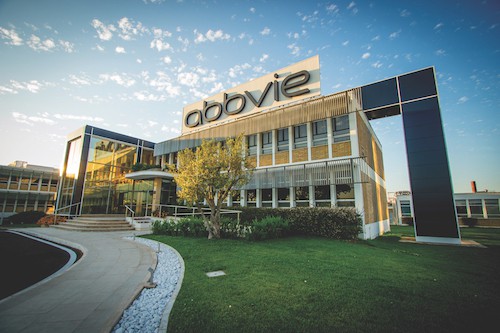
Slumping sales of AbbVie’s top-selling Humira drug outside the US pegged back sales at the company in the fourth quarter, but its newer products kept it in growth.
Revenues came in at $8.7bn, up 4.8%, with immunology blockbuster Humira (adalimumab) sales flat overall at $4.9bn, but down 27% overseas as biosimilar competition started to gather momentum.
Offsetting the decline was a 10% gain to just under $4bn in the US market, where Humira’s patents remain in force until at least 2023 despite numerous legal challenges. The US increase was buoyed by price rises that have led to criticism for AbbVie from lawmakers.
AbbVie agreed a merger with Allergan last year in a $63bn deal designed to diversify its business and reduce its reliance on Humira, but that deal didn’t come through in time to register on the results period.
Prior to that, AbbVie had been concentrated on bringing new drugs forward to help fill the void left by Humira’s decline, and on that front the fourth quarter brought good news.
Quick take-up of new immunology drugs Skyrizi (risankizumab) and Rinvoq (upadacitinib) have encouraged AbbVie to predict the pair will together make around $1.7bn in sales this year, well ahead of its earlier estimates.
IL-23 antagonist Skyrizi for psoriasis did particularly well, with sales of $216m in the last three months of the year against estimates of around $140m.
The growth came despite another strong quarter for Novartis’ IL-17 inhibitor Cosentyx (secukinumab) in psoriasis – currently leading the charge among a new generation of biologic therapies for the skin disorder amid an increasingly crowded market.
Meanwhile, selective JAK inhibitor Rinvoq added another $33m from its first approval in rheumatoid arthritis, as it took on market leader Xeljanz (tofacitinib) from Pfizer, which showed the first signs of a slowdown in the fourth quarter.
AbbVie reckons there is plenty of time to grow both drugs through new indications that – between the two new brands – will cover the broad spread of Humira’s current labelling, ahead of its 2023 patent expiry in the US. It thinks the two could eventually make upwards of $10bn a year, perhaps by 2025.
Outside its critical immunology franchise there were also gains for blood cancer therapy Imbruvica (ibrutinib), up almost 29% to $1.3bn, as well as a $251m contribution from newer therapy Venclexta (venetoclax) that keeps it on course to meet AbbVie and partner Roche’s blockbuster aspirations for the drug.
Analysts said the results bode well for AbbVie’s plans to accommodate the slowdown in Humira, even ahead of the Allergan merger going through, expected sometime this quarter. The company is now expecting overall earnings growth to be around 8% this year.




